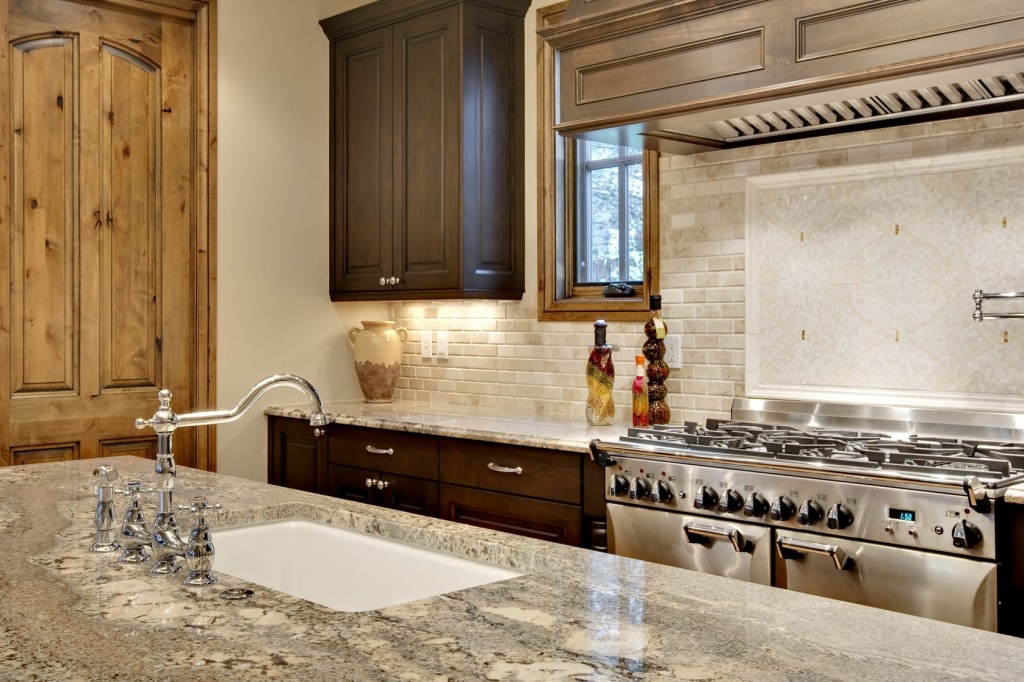
If you either have granite countertops or are considering upgrading your kitchen by adding them, you have probably done some research into this very popular building material. Maybe you were looking for a bargain price or tips for cleaning granite. Somewhere along the way, you may have stumbled onto a story or an article raising concerns over the possibility of granite countertops producing harmful radiation in homes.
In response to questions about the safety of granite countertops, the United States Environmental Protection Agency has spoken on their issue to quiet fears that danger is lurking in our kitchens. Their website explains that granite is a rock, and that all rocks could contain some radioactive elements. However, the agency puts the risk into perspective by pointing out that everyone is exposed to some level of radiation every day, and that a vast majority of this radiation comes from the very earth on which our homes are built. Soil is responsible for the non-harmful level of radiation that exists in every home, and is most often to blame if radiation does reach a harmful level.
Granite, in comparison, poses very little risk of harm. Most homes contain just several square feet of granite, as opposed to the massive amounts of soil that our homes rest in. In addition, granite is a very dense rock, less likely to allow the escape of gases, and is often treated with a seal when used as a countertop. A granite countertop’s contribution to a home’s overall radiation level is comparable to the effect of raindrops on a lake. As the EPA’s website states, it is “extremely unlikely” that granite countertops would cause any significant rise in your home’s radiation situation.
So, while granite does possess some radioactive elements, so do rocks, soil, air, and water. The question should not be whether or not granite contains any of these elements. It should be whether it is likely to release these elements at a dangerous rate into your home. And, to the relief of all of you who either have or hope to add granite countertops, that answer to that second, more important question, is “no.”
[/et_pb_text][/et_pb_column][/et_pb_row][/et_pb_section]



